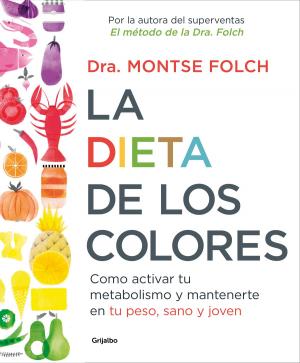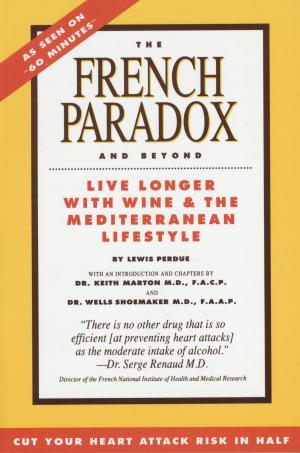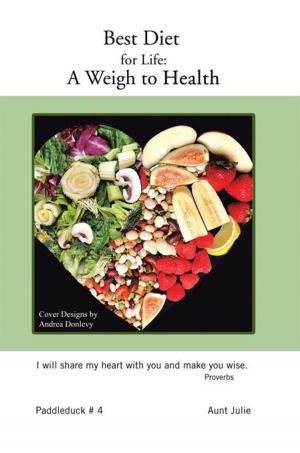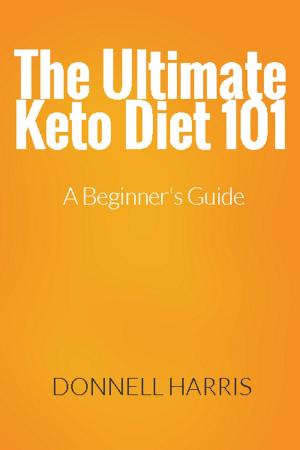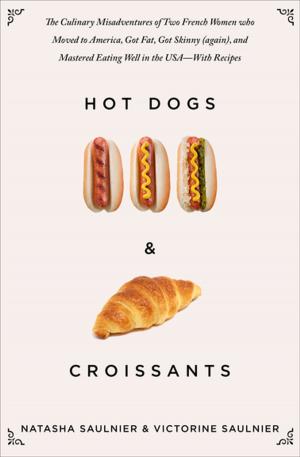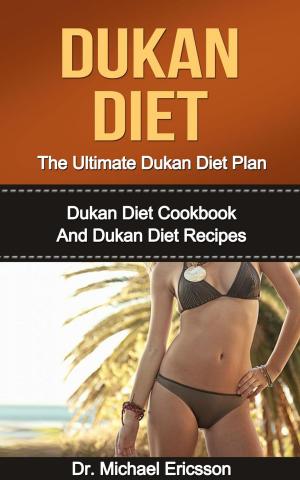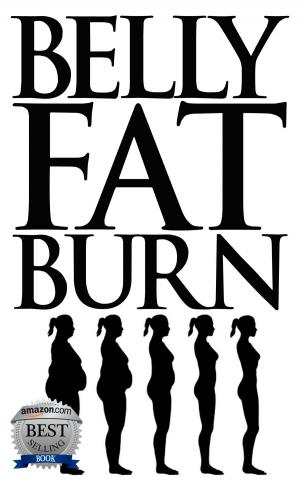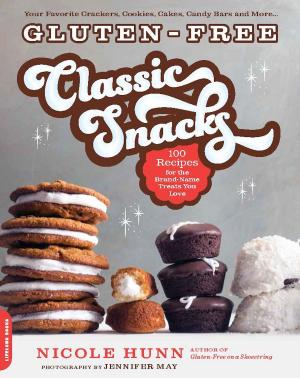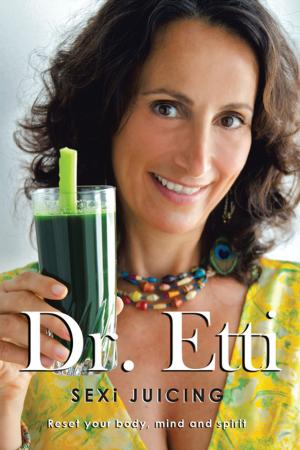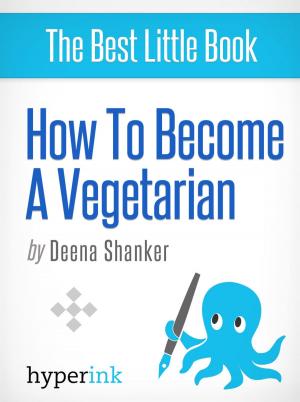Eating to Win with America's #1 Food Coach
Nonfiction, Health & Well Being, Medical, Patient Care, Nutrition, Health, Nutrition & Diet| Author: | Magic Noori | ISBN: | 9781465902115 |
| Publisher: | Magic Noori | Publication: | January 13, 2012 |
| Imprint: | Smashwords Edition | Language: | English |
| Author: | Magic Noori |
| ISBN: | 9781465902115 |
| Publisher: | Magic Noori |
| Publication: | January 13, 2012 |
| Imprint: | Smashwords Edition |
| Language: | English |
For the price of an iffy meal from the fast food drive-thru, Majid “Magic” Noori shows you how to take your athleticism to the next level by developing a strategic Training Table.
Life has taken Magic on a remarkable journey, from competitive swimming and a nutrition/sports science degree at the University of Tehran . . . to the U. S. and work as a sought-after chef . . . to his role as dietary advisor and chef for Vanderbilt University’s 300-plus varsity athletes . . . to his recognition by Sports Illustrated as “#1 food coach in America.”
With EATING TO WIN, Magic does for every athlete what he’s done for the likes of Chicago Bears quarterback Jay Cutler, Tampa Bay Rays pitcher David Price, and golfer Brandt Snedeker – enhance athletic performance through what he calls his winning formula of FREE –Food/Fluids, Rest, Exercise, and Education (“education” meaning awareness of the approximate calories and grams of carbohydrates, protein, and fat ingested each day).
The practical application of FREE is the Training Table, consisting of three full meals and two snacks daily. Magic is at your side as you . . .
• Set your goals, be they to lose weight, maintain it, or gain it;
• Base weekly menus on expected athletic activity, changing your intake of macronutrients (those carbs, protein, and fat) – an important key to success;
• Incorporate exercise and rest into your game plan.
EATING TO WIN covers all the bases, and setting it apart are enlightening sidebars and unique charts. Following is a sampling of what you’ll find in some of the book’s 12 chapters, the titles of which are capitalized.
Training Table prototypes for all meals
Turn to EATING SMART for food suggestions for your five meals a day, complete with nutrition data offering at-a-glance comparisons of foods – for example, a granola bar vs. trail mix or a loaded baked potato vs. a light one. In both the “Weight-Loss Maintenance Training Table Sampler” and its weight-gain counterpart are suggestions for 12 breakfast foods; 10 mid-morning snacks; 16 lunch foods; 10 mid-afternoon snacks; and 20 dinner foods. Found throughout is info on everything from how to tell the difference between real and fake fruit juice to the nutritive value of 12 kinds of bread and 9 different nuts.
“8 glasses of water a day” myth debunked!
Among other things, HYDRATION, HYDRATION, HYDRATION explains how much of our daily requirement of 64 ounces of water comes from food. (Consider: Cooked meats are 40–70% water: cheeses, 35–60%; breads about 35%.) You’ll also find “Drinks from Garden, Bush, and Tree,” a chart of the “juiciest” fruits and vegetables. (Hint: The lemon is 96% water!).
Best ways to bulk up
WORKING OUT, WEIGHING IN includes muscle-building foods to eat half an hour before weightlifting; a chart with daily calories needed to maintain weight or lose or gain1 pound weekly; and a look at how pro athletes weigh themselves, from DEXA scans to Bod Pods.
The role of rest
Discussed in REST TO BE YOUR BEST: How to gauge the hours of sleep you need; the virtues of day resting; ways to depressurize before bedtime; and more. You’ll also meet former Tennessee Titans running back Eddie George, who credits learning how to rest as one the secrets of his success.
Healing foods
In FIGHTING ILLNESS, HEALING INJURIES, ailments that lay athletes low are listed alphabetically, followed by foods or dietary supplements that help fight off maladies. Who knew that a guava has four times more vitamin C than an orange; oily fish and tofu can relieve hay fever; and lean beef can help prevent both osteoporosis and muscle cramps?
Quick nutrition comparisons
In the BUILDING ENDURANCE chapter, 40 BEVERAGES are listed from highest CARBS to lowest and also include calorie, protein, and total fat counts. Likewise, YOUR WEIGHT LOSS TRAINING TABLE has 40 PIZZA TOPPINGS from highest CALORIES to lowest, and YOUR WEIGHT GAIN TRAINING TABLE lists 40 CHEESES from highest FAT to lowest.
For the price of an iffy meal from the fast food drive-thru, Majid “Magic” Noori shows you how to take your athleticism to the next level by developing a strategic Training Table.
Life has taken Magic on a remarkable journey, from competitive swimming and a nutrition/sports science degree at the University of Tehran . . . to the U. S. and work as a sought-after chef . . . to his role as dietary advisor and chef for Vanderbilt University’s 300-plus varsity athletes . . . to his recognition by Sports Illustrated as “#1 food coach in America.”
With EATING TO WIN, Magic does for every athlete what he’s done for the likes of Chicago Bears quarterback Jay Cutler, Tampa Bay Rays pitcher David Price, and golfer Brandt Snedeker – enhance athletic performance through what he calls his winning formula of FREE –Food/Fluids, Rest, Exercise, and Education (“education” meaning awareness of the approximate calories and grams of carbohydrates, protein, and fat ingested each day).
The practical application of FREE is the Training Table, consisting of three full meals and two snacks daily. Magic is at your side as you . . .
• Set your goals, be they to lose weight, maintain it, or gain it;
• Base weekly menus on expected athletic activity, changing your intake of macronutrients (those carbs, protein, and fat) – an important key to success;
• Incorporate exercise and rest into your game plan.
EATING TO WIN covers all the bases, and setting it apart are enlightening sidebars and unique charts. Following is a sampling of what you’ll find in some of the book’s 12 chapters, the titles of which are capitalized.
Training Table prototypes for all meals
Turn to EATING SMART for food suggestions for your five meals a day, complete with nutrition data offering at-a-glance comparisons of foods – for example, a granola bar vs. trail mix or a loaded baked potato vs. a light one. In both the “Weight-Loss Maintenance Training Table Sampler” and its weight-gain counterpart are suggestions for 12 breakfast foods; 10 mid-morning snacks; 16 lunch foods; 10 mid-afternoon snacks; and 20 dinner foods. Found throughout is info on everything from how to tell the difference between real and fake fruit juice to the nutritive value of 12 kinds of bread and 9 different nuts.
“8 glasses of water a day” myth debunked!
Among other things, HYDRATION, HYDRATION, HYDRATION explains how much of our daily requirement of 64 ounces of water comes from food. (Consider: Cooked meats are 40–70% water: cheeses, 35–60%; breads about 35%.) You’ll also find “Drinks from Garden, Bush, and Tree,” a chart of the “juiciest” fruits and vegetables. (Hint: The lemon is 96% water!).
Best ways to bulk up
WORKING OUT, WEIGHING IN includes muscle-building foods to eat half an hour before weightlifting; a chart with daily calories needed to maintain weight or lose or gain1 pound weekly; and a look at how pro athletes weigh themselves, from DEXA scans to Bod Pods.
The role of rest
Discussed in REST TO BE YOUR BEST: How to gauge the hours of sleep you need; the virtues of day resting; ways to depressurize before bedtime; and more. You’ll also meet former Tennessee Titans running back Eddie George, who credits learning how to rest as one the secrets of his success.
Healing foods
In FIGHTING ILLNESS, HEALING INJURIES, ailments that lay athletes low are listed alphabetically, followed by foods or dietary supplements that help fight off maladies. Who knew that a guava has four times more vitamin C than an orange; oily fish and tofu can relieve hay fever; and lean beef can help prevent both osteoporosis and muscle cramps?
Quick nutrition comparisons
In the BUILDING ENDURANCE chapter, 40 BEVERAGES are listed from highest CARBS to lowest and also include calorie, protein, and total fat counts. Likewise, YOUR WEIGHT LOSS TRAINING TABLE has 40 PIZZA TOPPINGS from highest CALORIES to lowest, and YOUR WEIGHT GAIN TRAINING TABLE lists 40 CHEESES from highest FAT to lowest.


